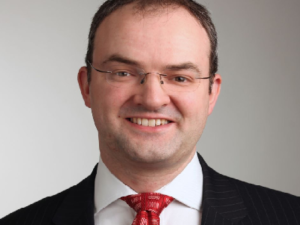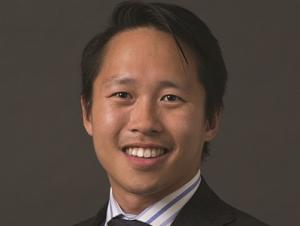R2 Semiconductor and HSF unsuccessful with lawsuit against Intel in London
R2 Semiconductor cannot enforce a semiconductor patent against Intel in the UK. At the end of July, the UK High Court declared the patent null and void. In Germany, however, the Californian company had more success.
6 August 2024 by Mathieu Klos
Intel has prevailed in the UK with its revocation counterclaim against R2 Semiconductor’s EP 3 376 653 B1. The UK High Court under presiding judge Richard Hacon declared the patent invalid at the end of July (case ID: HP-2022-000031).
R2 Semiconductor develops high-frequency semiconductor technology for power management. Its EP 653 covers voltage-regulation technology for a switching converter in an integrated circuit unit.
Hacon heard the case in a two-and-a-half-week trial in April. He revoked the patent for lack of inventive step.
R2 Semiconductor likely to appeal
This puts an end to R2 Semiconductor’s patent infringement suit against Intel. However, Hacon ruled that if the patent had been valid, it would have been infringed. R2 Semiconductor claims that the ‘fully integrated voltage regulator’ technology present in many of the last three generations of Intel processors such as Ice Lake, Tiger Lake, Alder Lake and Ice Lake Server (Xeon) processors, infringes EP 653.
R2 Semiconductor has not yet lodged an appeal against the ruling. However, this step is considered likely, partly due to the dispute’s financial implications. The company can now first ask judge Hacon to allow the appeal in the so-called Form of Order Hearing. If Hacon refuses, R2 Semiconductor can ask the Court of Appeal to accept the appeal in accordance with English law.
Success in Germany
The dispute has entered its second round in Germany. In February 2024, Düsseldorf Regional Court upheld claims made by R2 Semiconductor, finding that certain Intel central processing units (CPUs), embedded in electronic devices, infringe the claimant’s patent.
Then, in March, Düsseldorf Higher Regional Court rejected Intel’s request to stay the enforcement of the injunction pending the validity case. Intel had also filed a counterclaim for revocation at the German Federal Patent Court. At the end of 2023, the court issued an opinion stating it was highly probable the court would find the patent valid. Judges have scheduled a hearing for the validity case in October 2024.
Intel not the only target
Meanwhile, Intel has appealed the infringement judgment at Düsseldorf Higher Regional Court. In the German proceedings, HP, Dell and HPE, as Intel’s customers, are all involved in the case as defendants.
R2 Semiconductor has since expanded the dispute in Germany, filing suit in March 2024 against Intel customers Fujitsu and Amazon Web Services for infringing EP 653.
In addition, Intel has filed a claim of non-infringement of the Italian part of EP 653 at Milan Regional Court. In May, R2 Semiconductor filed an infringement suit in Milan against Intel and the Italian affiliates of customers Dell, HP, and HPE.
Furthermore, in April, R2 Semiconductor announced that it had filed a patent infringement claim at the Paris Judicial Court against Intel as well as against its customers HP, Dell and HPE. Intel and its customers meanwhile challenged the validity of EP 653 in France.
All cases in Europe concern EP 653. However, the patent holder opted the patent out of the Unified Patent Court.
$780 million in dispute
A quarterly report filed by Intel with the United States Securities and Exchange Commission (Form 10-Q report) suggests that the chip giant and R2 Semiconductor are working on an agreement in the background. The report states the defendant is “in negotiations to enter into three separate confidential agreements with R2, Third Point (the controlling shareholder) and TRGP Capital (a third-party organisation funding the lawsuits) to resolve the injunction enforcement risk and related pending litigation, and provide for broad-based litigation peace with these entities, which may include rights to other technology and services to Intel”.
This could mean that not only EP 653 is the subject of a licence agreement but also other intellectual property rights. However, none of the parties commented further on the negotiations.
In the report, Intel also provides information on the financial volume of the dispute. “Based on the anticipated agreements, we recorded a current period charge of $780 million, substantially all of which is attributable to the proposed broad-based litigation peace.”
Another win for Kirkland’s London team
In the UK, a team from international firm Herbert Smith Freehills is leading the charge for R2 Semiconductor. Partners Andrew Moir and Andrew Wells are running the team, working closely with the barristers Brian Nicholson and Adam Gamsa from 11 South Square as well as Edmund Eustace from 8 New Square.
Also part of the team are Herbert Smith Freehills associates David Webb, Monika Klajn, Tim Gollan, Sabesh Asokan and Amelia Chammas.
- Andrew Moir
- Andrew Wells
In Italy, R2 is represented by LGV Avvocati with a team consisting of lead partners Luigi Goglia and Tankred Thiem, as well as Simona Lavagnini and Brenda Villa.
In the German proceedings R2 Semiconductor relies on Bardehle Pagenberg and Eisenführ Speiser.
A relatively small team from the London office of US firm Kirkland & Ellis represents Intel. Partners Daniel Lim and Nicola Dagg are running the case for the US manufacturer. Intel’s barristers in the case are Andrew Lykiardopoulos from 8 New Square and Anna Edwards-Stewart from 11 South Square.
- Nicola Dagg
- Daniel Lim
While Intel has long relied on the US-based Kirkland team, the instruction against R2 Semiconductor demonstrates that the firm is becoming a top choice for the company in the UK, too. The London team is currently very present in mobile communication and computer-related litigation. It also represents Lenovo and Xiaomi in other disputes.
In Germany, European IP boutique Hoyng ROKH Monegier works for Intel, having previously represented the latter company in Europe. In Italy, Trevisan & Cuonzo act for Intel, with Vittorio Cerulli Irelli the lead partner. JUVE Patent cannot confirm which firms represent R2 Semiconductor in Italy and France.



